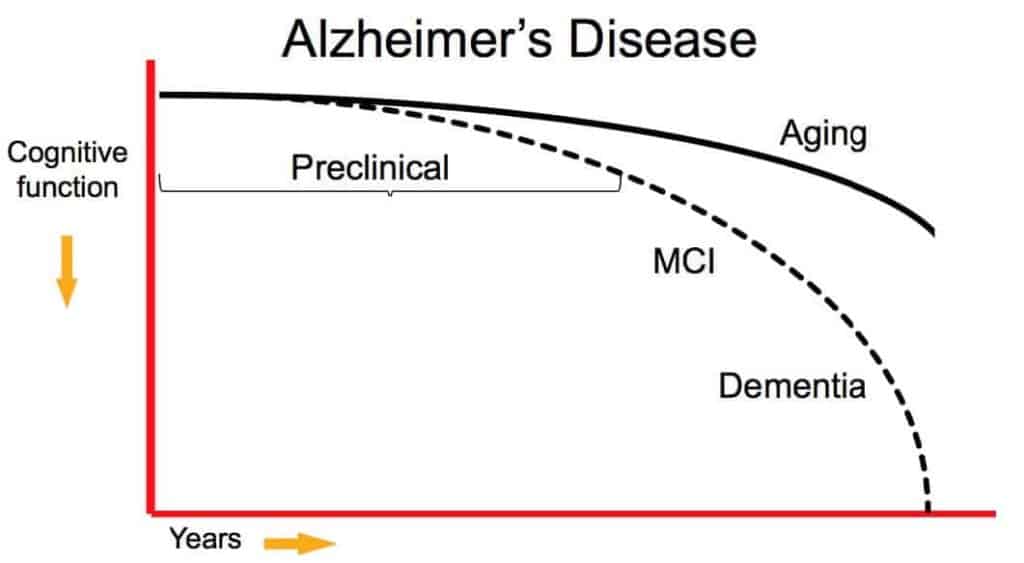
Many neurological diseases, including Alzheimer’s disease, can be thought of as continuums, whether the presence and manifestation of the disease are different depending on the stage of the disease. In this article, we provide a high-level overview of the stages in the Alzheimer's disease continuum, with a focus on preclinical Alzheimer’s disease and its importance in patient care and treatment.
The Alzheimer's disease continuum consists of five stages:

Preclinical Alzheimer’s disease is a newly defined stage in the Alzheimer’s disease continuum. This stage is often referred to as the “silent” stage of Alzheimer’s because no clinical symptoms are present. In most cases, individuals with preclinical Alzheimer’s disease will not notice any symptoms, nor will their friends and family. Alzheimer's disease and the consequent changes in the brain begin long before symptoms arise. The preclinical stage can last years, possibly even decades.
Preclinical Alzheimer's disease begins when the first neuropathologic brain lesions show up in the brain and ends when the first clinical symptoms begin. The first of these lesions to appear in the brain are beta-amyloid plaques, a distinct pathology of Alzheimer's. Beta-amyloid proteins begin to collect in the brains of those with Alzheimer's disease as early as 20 years before symptom onset.
This disease stage encompasses the full spectrum of individuals, from those who are asymptomatic to those who are presymptomatic. Asymptomatic refers to an individual who carries the defining pathology of Alzheimer's disease (amyloid) but has yet to develop clinically recognizable symptoms (MCI). Presymptomatic refers to individuals who carry genetics that predispose them to developing Alzheimer’s disease but have yet to develop Alzheimer’s.
The long presymptomatic phase of Alzheimer’s provides a critical window of opportunity for early intervention and early treatment. Like many diseases and conditions, early intervention is believed to offer the best chance of therapeutic success—and thanks to immense research efforts surrounding traditional and digital biomarkers, Alzheimer's disease can now be identified before the onset of clinical symptoms.
Individuals with MCI due to Alzheimer’s have minor changes to their memory, thinking, and other cognitive abilities. These changes are not severe enough to interfere with their Activities of Daily Living (normal day-to-day activities).
Symptoms of MCI due to Alzheimer’s disease may include:
These changes are often subtle; however, you or your loved ones may notice these changes.
Individuals with mild dementia due to Alzheimer’s may still be able to complete Activities of Daily Living independently and may also live independently but have experienced symptoms such as:
In this stage, there are typically similar symptoms to the previous stage but the symptoms become more pronounced. In addition to cognitive changes, they may also experience function changes, such as issues with fine motor coordination and changes in gait. Individuals with moderate dementia due to Alzheimer’s disease may have difficulty completing normal Activities of Daily Living, such as eating, bathing, and dressing, and may require assisted living.
Individuals with severe dementia due to Alzheimer’s disease will require assistance with most normal activities. In this stage, symptoms typically include:
Altoida’s mission is to accelerate and improve drug development, neurological disease research, and patient care. To learn more about our precision-neurology platform and app-based medical device, contact us!